Meet our head of sixth form
2018-03-07
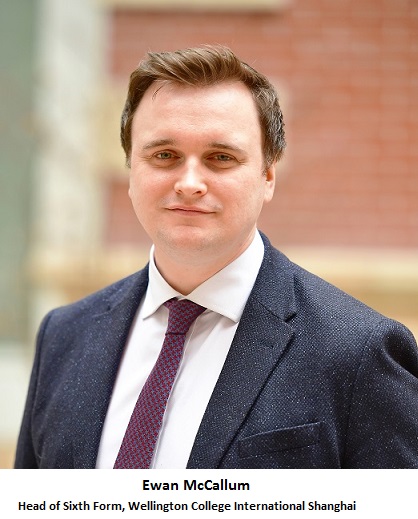 Ewan joined Wellington from the British International School in Washington DC where he was head of humanities and latterly head of professional learning. It is the International Baccalaureate Diploma Programme that initially drew him to international education, and he has taught history, theory of knowledge and global politics to this level. Before pursuing international education, Ewan took up his first post at John O’Gaunt School in Hungerford, Berkshire where he was head of history and head of year 11.
What attracted you to come to Wellington College International Shanghai?
I knew Wellington College UK and their fantastic reputation since I had already taught in Berkshire. However, it was the position as head of sixth form that really attracted me to come here. I think the IB is a phenomenal educational programme and it’s clear that Wellington is well placed to deliver it as successfully as possible.
Ewan joined Wellington from the British International School in Washington DC where he was head of humanities and latterly head of professional learning. It is the International Baccalaureate Diploma Programme that initially drew him to international education, and he has taught history, theory of knowledge and global politics to this level. Before pursuing international education, Ewan took up his first post at John O’Gaunt School in Hungerford, Berkshire where he was head of history and head of year 11.
What attracted you to come to Wellington College International Shanghai?
I knew Wellington College UK and their fantastic reputation since I had already taught in Berkshire. However, it was the position as head of sixth form that really attracted me to come here. I think the IB is a phenomenal educational programme and it’s clear that Wellington is well placed to deliver it as successfully as possible.
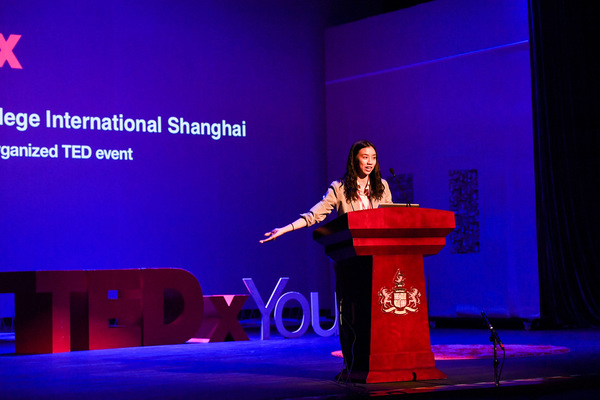 What would you say is your vision for Wellington’s sixth form and what would you like to achieve as its head?
It’s clear that there are a number of elements that are already working extremely well in the sixth form. Looking at last year’s excellent IB results proves that; some of our scholars achieved scores that are among the best in the world. Therefore, it’s important that we reinforce these successes and not get complacent about refining our teaching approach to make sure that it stays relevant and effective.
In terms of future achievements, I think it’s important that we give our sixth form pupils every opportunity to become young leaders, both here in the College and beyond. Many of our sixth formers have the right balance of solid leadership skills and an appropriately kind and patient attitude that makes them suitable to take on mentoring roles to younger pupils. This isn’t the only way they can be leaders, of course, as they also have plenty of other opportunities to do so in academia, sports, the arts and formal positions of responsibility.
What would you say is your vision for Wellington’s sixth form and what would you like to achieve as its head?
It’s clear that there are a number of elements that are already working extremely well in the sixth form. Looking at last year’s excellent IB results proves that; some of our scholars achieved scores that are among the best in the world. Therefore, it’s important that we reinforce these successes and not get complacent about refining our teaching approach to make sure that it stays relevant and effective.
In terms of future achievements, I think it’s important that we give our sixth form pupils every opportunity to become young leaders, both here in the College and beyond. Many of our sixth formers have the right balance of solid leadership skills and an appropriately kind and patient attitude that makes them suitable to take on mentoring roles to younger pupils. This isn’t the only way they can be leaders, of course, as they also have plenty of other opportunities to do so in academia, sports, the arts and formal positions of responsibility.
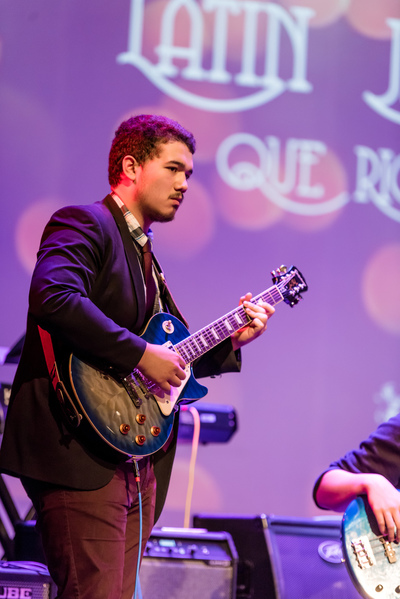 And how, specifically, will they be given the chance to show their leadership abilities and aptitudes?
Much of this process is now happening organically as sixth formers naturally gravitate towards helping and guiding their younger peers. I think Wellington’s house system is partly responsible for that, as pupils are drawn together across different age groups and are much closer because of it.
However, we will be actively encouraging year 12 and 13 pupils to try out mentoring roles more formally. For example, a year 12 who’s incredibly passionate about the guitar might take on the role of mentoring a year 9 pupil. My hope is that the sixth formers will be able to connect with younger pupils and bond with them over experiences like this. We’ve already begun looking at implementing mentoring initiatives, including a peer-driven reading programme which puts year 12 IB students together with year 6 pupils.
As well as mentoring, we want to empower the sixth formers to show their leadership in other ways. The College has already seen a number of extremely successful pupil-led, pupil-driven initiatives coming from the sixth form, such as last year’s Coin-a-thon and the Science Week workshops and lectures. Understandably, we want encourage and support this kind of original and ambitious thinking, so that our sixth formers feel comfortable coming to us and putting their ideas forward. We in turn need to do everything we can to help turn these ideas into realities.
And how, specifically, will they be given the chance to show their leadership abilities and aptitudes?
Much of this process is now happening organically as sixth formers naturally gravitate towards helping and guiding their younger peers. I think Wellington’s house system is partly responsible for that, as pupils are drawn together across different age groups and are much closer because of it.
However, we will be actively encouraging year 12 and 13 pupils to try out mentoring roles more formally. For example, a year 12 who’s incredibly passionate about the guitar might take on the role of mentoring a year 9 pupil. My hope is that the sixth formers will be able to connect with younger pupils and bond with them over experiences like this. We’ve already begun looking at implementing mentoring initiatives, including a peer-driven reading programme which puts year 12 IB students together with year 6 pupils.
As well as mentoring, we want to empower the sixth formers to show their leadership in other ways. The College has already seen a number of extremely successful pupil-led, pupil-driven initiatives coming from the sixth form, such as last year’s Coin-a-thon and the Science Week workshops and lectures. Understandably, we want encourage and support this kind of original and ambitious thinking, so that our sixth formers feel comfortable coming to us and putting their ideas forward. We in turn need to do everything we can to help turn these ideas into realities.
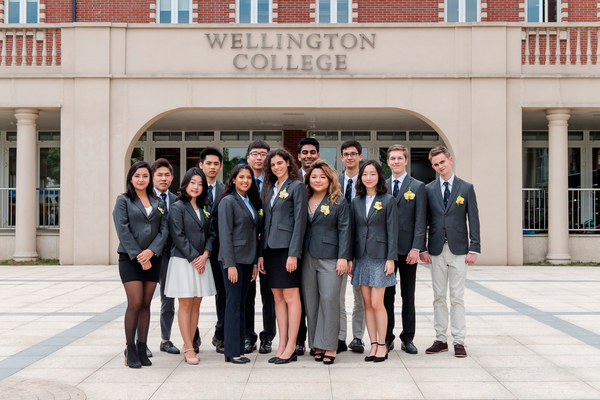 Last year, Wellington saw its first group of year 13 pupils complete the IBDP and receive some excellent results. How are you planning to keep this momentum going as the sixth form grows in size?
It’s very important that as the sixth form grows we are still able to give each pupil the individual attention and guidance that they need in order to achieve their potential while enjoying their time at Wellington to the fullest. This is especially pertinent at the time when pupils are preparing for their exams while also making very important life decisions about their chosen path after school.
One key aspect of ensuring that each sixth former feels completely supported is how we maintain an open dialogue with parents. I believe that we need to be open and transparent with parents, and subsequently advise them how to help their children successfully manage these challenging tasks and decisions. However, it’s vital to strike a balance between being supportive while also remaining constructive in our guidance.
To that end, Wellington’s Wellbeing programme is an extremely helpful part of preparing our sixth formers for the rigours of IB, exams and university applications. It provides both pupils and their parents practical stress coping strategies, revision guidelines, advice on decision making as well as inviting pupils to explore larger ethical and moral questions with regard to their future choices. As the College and its sixth form grow, it’s critical that we use every tool at our disposal to support and challenge each pupil in our care and give them the best chance of success, personally and academically.
Last year, Wellington saw its first group of year 13 pupils complete the IBDP and receive some excellent results. How are you planning to keep this momentum going as the sixth form grows in size?
It’s very important that as the sixth form grows we are still able to give each pupil the individual attention and guidance that they need in order to achieve their potential while enjoying their time at Wellington to the fullest. This is especially pertinent at the time when pupils are preparing for their exams while also making very important life decisions about their chosen path after school.
One key aspect of ensuring that each sixth former feels completely supported is how we maintain an open dialogue with parents. I believe that we need to be open and transparent with parents, and subsequently advise them how to help their children successfully manage these challenging tasks and decisions. However, it’s vital to strike a balance between being supportive while also remaining constructive in our guidance.
To that end, Wellington’s Wellbeing programme is an extremely helpful part of preparing our sixth formers for the rigours of IB, exams and university applications. It provides both pupils and their parents practical stress coping strategies, revision guidelines, advice on decision making as well as inviting pupils to explore larger ethical and moral questions with regard to their future choices. As the College and its sixth form grow, it’s critical that we use every tool at our disposal to support and challenge each pupil in our care and give them the best chance of success, personally and academically. 相关资讯

What is iGEM and our project, Barnacure?2025-10-09
iGEM Competition & Barnacure Team Members Team Illustration by Joanna, Year 11Article written Jing Jing, Year 11Primary Principal Investigator: Thomas Edwards, Head of Biology & Head of Science What
点击阅读

TEDx Youth探索“未知水域”2025-02-19
上学期,我校学生通过一年一度的TEDxYouth演讲活动(由学生自主组织),向全体师生呈现了一场精彩绝伦的展示,充分展现了年轻人旺盛的好奇心、非凡的勇气以及不可估量的潜能。这次演讲以“未知水域”为主题,9至13年级的学生们纷纷登台,围绕多个引人深思的话题,满怀激情地分享了自己的见解、疑问和想法。 从探究手机对年轻人的影响,到深刻剖析司法、道德与政治领域的错综复杂性,这些年轻的演讲者凭借其敏锐的洞
点击阅读

2025 年FOBISIA运动会,惠灵顿脱颖而出2025-03-25
我们的小学运动员继续在国际舞台上大显身手。惠灵顿学子在田径和游泳比赛中都取得了第一名的好成绩。此外,女子足球队也获得了第三名的好成绩。Alec 和 Ermes 在游泳比赛中打破了 FOBISIA 的 13 岁以下记录! 惠灵顿学子的表现可谓出类拔萃。他们表现出了无与伦比的技能、决心和团队精神,这让他们在激烈的竞争中脱颖而出。
点击阅读










